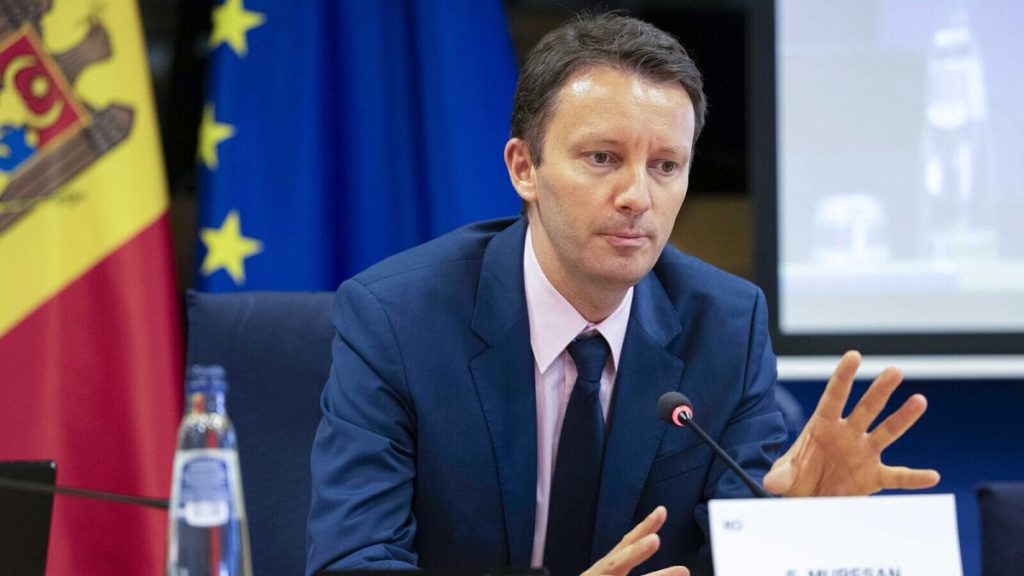Siegfried Mureșan, the chair of the European Parliament’s EU-Moldova delegation, has expressed concerns over Hungary’s Olivér Várhelyi being in charge of the European Commission’s enlargement and neighborhood portfolio, as he was appointed to the job by Viktor Orbán. Orbán’s government has attempted to obstruct the EU accession process for Ukraine and Moldova, two countries that have jointly applied for membership following Russia’s invasion of Ukraine. With Hungary taking over the presidency of the Council of the EU in July, there are fears that the accession push could be demoted. Last week, EU ambassadors unanimously backed the opening of accession talks with Ukraine and Moldova, marking the first step in a lengthy process.
The upcoming European Parliament is expected to be more rightward-leaning, raising concerns that far-right voices sympathetic to Putin’s Russia could be empowered. The European Conservatives and Reformists (ECR) group recently welcomed the Alliance for the Union of Romanians (AUR), a nationalist, populist party with veiled pro-Russian tendencies, into its ranks. Mureșan criticized AUR’s stance and its potential impact on the ECR’s political positioning. He emphasized the importance of a secure and stable neighborhood for the EU’s security, especially regarding the integration of Ukraine and Moldova into the bloc and its single market.
Moldova, situated between Romania, the EU, and Ukraine, has acted as a pro-European buffer amidst the conflict in Ukraine, contrasting with Belarus’s regime accommodating Putin’s interests. Moldova has reduced its dependence on Russian energy supplies, with only one remaining entity reliant on Russian gas in the Kremlin-backed breakaway region of Transnistria. Moldova’s bid for EU membership includes Transnistria, despite the presence of Russian troops in the region and concerns regarding Russian ammunition. Moldova sees Ukraine’s resistance as crucial for its stability, considering the war as an opportunity to reintegrate Transnistria, which relies on the EU for the majority of its exports.
Moldova will hold a presidential election on October 20, with President Maia Sandu seeking to solidify her mandate. The same day will also feature a referendum on EU membership, aimed at confirming the irreversible decision to join the EU. Mureșan highlighted the significance of the upcoming election in deterring Kremlin-backed interference, as past attempts to disrupt such events have been observed. President Sandu is projected to win, but the nature of her victory will be crucial, determining if a second round will be needed. Mureșan warned of potential Russian investment in pro-Russian candidates in the election, emphasizing the importance of safeguarding Moldova’s democratic processes.
In the context of Moldova’s geopolitical position and ongoing efforts towards EU accession, Moldova’s stability is intertwined with the regional dynamics of Ukraine and Transnistria. Moldova’s dialogue with Transnistria, an industrial hub heavily reliant on EU exports, is part of its strategy to integrate the region back into the country. Moldova’s energy independence from Russia and commitment to EU membership demonstrate its alignment with European values and aspirations. Mureșan emphasized the need for continued support for Moldova’s EU integration and security enhancement, given the broader implications for European stability and the containment of Russian influence in the region.
As the EU navigates challenges in its enlargement process and grapples with potential shifts in the political landscape of the European Parliament, the issue of EU integration for countries like Ukraine and Moldova remains a key focus. The upcoming changes in the European Commission and Council of the EU could influence the trajectory of the accession talks with Ukraine and Moldova, impacting the region’s stability and security. Mureșan’s warnings about the implications of Hungarian influence and far-right voices in the EU underscore the complexities of the enlargement process and the need for a unified approach to safeguarding European values and interests in the region.


